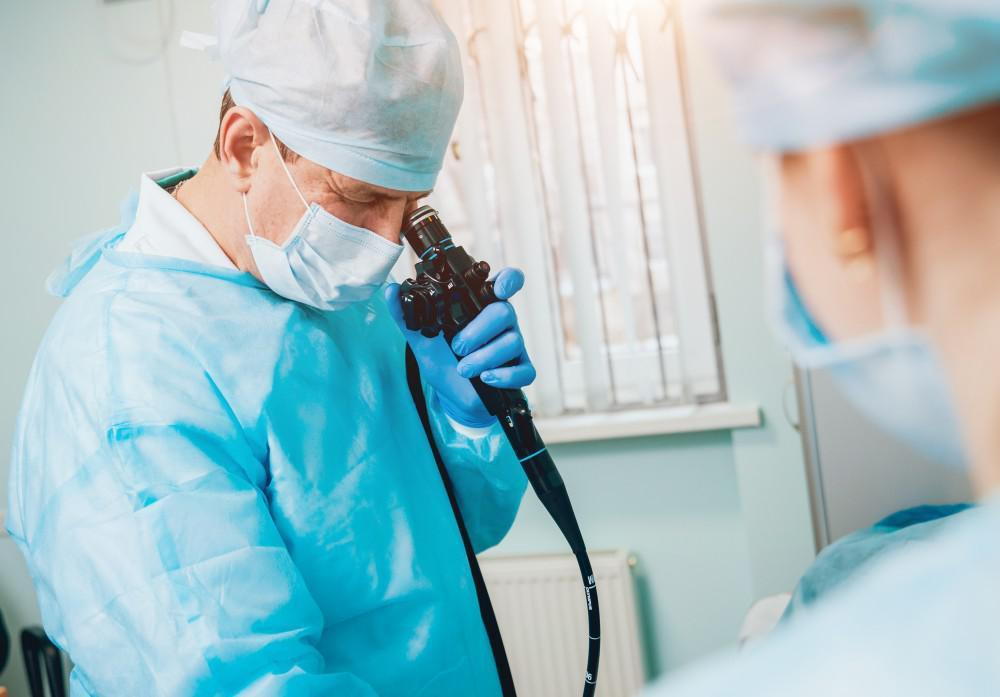
A variety of treatment options exist to help doctors pinpoint the cause of your symptoms. Many times, it is through investigative procedures, including the advanced endoscopy, that we can determine what health risks exist, if any. Whether done because you have symptoms or because you are high-risk, procedures like this can be life-threatening. Our team will work with you to determine when these tests are necessary.
What is advanced endoscopy?
Advanced endoscopy is the use of gastrointestinal endoscopy to discover concerns in the digestive system. During this procedure, doctors will send a scope down into the esophagus with a camera attached to it. It also has small tools the doctor can use to pull a piece of tissue off for further testing. As it works through the digestive system, it can give doctors a clear view of what’s happening, allowing them to pinpoint the specific type of health risk as well as the severity of it.
There are several forms of this type of procedure, yet they all work to take a closer look at the digestive tract to find any instances of esophageal or stomach disorders. Additionally, other forms, such as colonoscopies, will use the same type of technology to examine a person’s colon. Sometimes, we can also use these with ultrasound to provide more insight on pancreatic and biliary disorders as well.
When is advanced endoscopy used?
There are many reasons doctors may utilize this type of testing. At Hawaii Gastroenterology Specialists, our team uses them when there are risk factors associated with gastrointestinal concerns. These may include:
- Unexplained pain
- Diarrhea that does not seem to resolve
- Bleeding
- Inability to eat
- Vomiting
- Other testing that reveals concerns
What about growths?
One of the reasons doctors may use advanced endoscopy is to find out what’s present in these areas. Using this method, a doctor can insert the scope into the worrisome area. They can then deploy small tools that cut off a growth, such as a polyp, if present, or take a tissue sample. Then, this information can be tested in a lab to determine if it is benign (non-cancerous) or a form of cancer. In some cases, the simple use of these tools can remove the polyp, which may minimize the need for more invasive surgery.
When should you have this procedure done?
Most of the time, men and women should work with their doctors to find out if they need any type of procedure. Though advanced endoscopy is a very safe procedure, there are some risks related to infection and bleeding. Your doctor will not recommend it for all people. Yet, it may be beneficial to talk to your team about it if you have any symptoms that have not improved through treatment. These may include:
- Pain or sores that develop in any area of the digestive system, from the mouth on through to the rectum
- Abdominal pain that does not resolve
- Unexplained bleeding from the rectum
- A family history of colon or other digestive system cancers or disease
- Stomach-related concerns, such as the inability to eat well, lack of absorption of nutrients or ulcer formation
The procedure is outpatient. You will not be awake for it, but it does not cause any outward injuries. Most people are able to go home the same day and feel about normal within a day or so. However, the type of insight that the procedure offers to your doctor is hard to have in any other way. That makes it vital for those with unexplained problems. It can give you the answers you need.
Get help from our advanced endoscopy procedures today
There’s no way to know what risk factors you have, but careful monitoring of symptoms and the use of prevention tools can help. We encourage you to contact Hawaii Gastroenterology Specialists to learn more about how our advanced endoscopy procedures can help you. You can call us or book an appointment online today.
